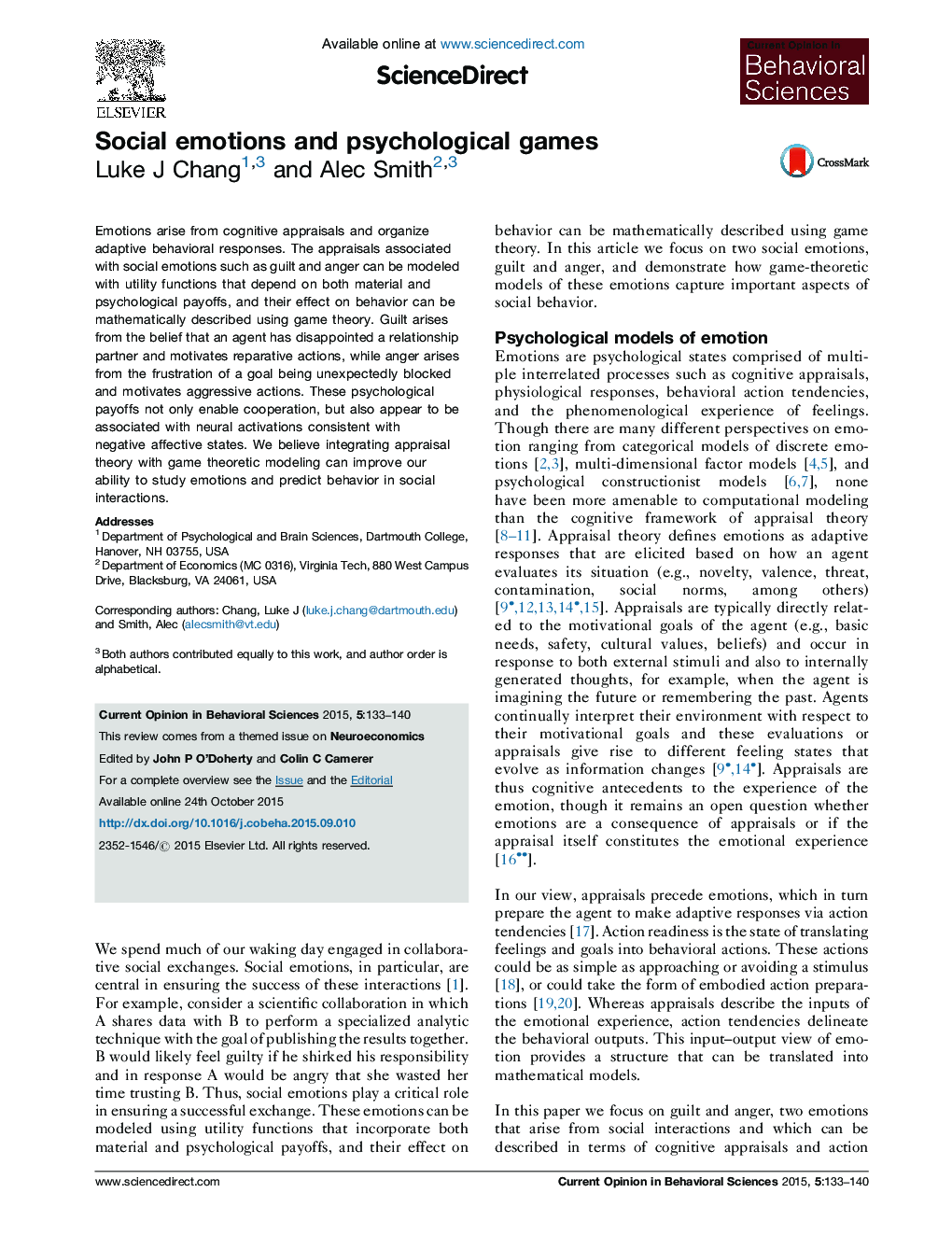| Article ID | Journal | Published Year | Pages | File Type |
|---|---|---|---|---|
| 6260866 | Current Opinion in Behavioral Sciences | 2015 | 8 Pages |
â¢Models of social emotions formalize the tradeoffs between psychological and material consequences.â¢Guilt arises from the failure to live up to a partner's expectations.â¢Anger arises from the frustration of a goal being unexpectedly blocked.â¢Social emotions can enable cooperation.â¢Emotion models correspond to self-reports and neural representations of affect.
Emotions arise from cognitive appraisals and organize adaptive behavioral responses. The appraisals associated with social emotions such as guilt and anger can be modeled with utility functions that depend on both material and psychological payoffs, and their effect on behavior can be mathematically described using game theory. Guilt arises from the belief that an agent has disappointed a relationship partner and motivates reparative actions, while anger arises from the frustration of a goal being unexpectedly blocked and motivates aggressive actions. These psychological payoffs not only enable cooperation, but also appear to be associated with neural activations consistent with negative affective states. We believe integrating appraisal theory with game theoretic modeling can improve our ability to study emotions and predict behavior in social interactions.
